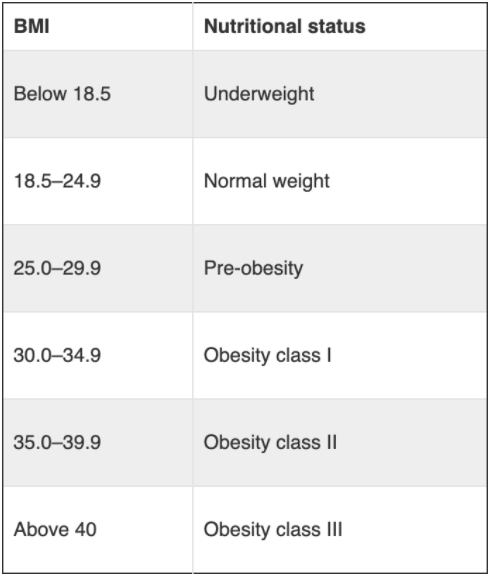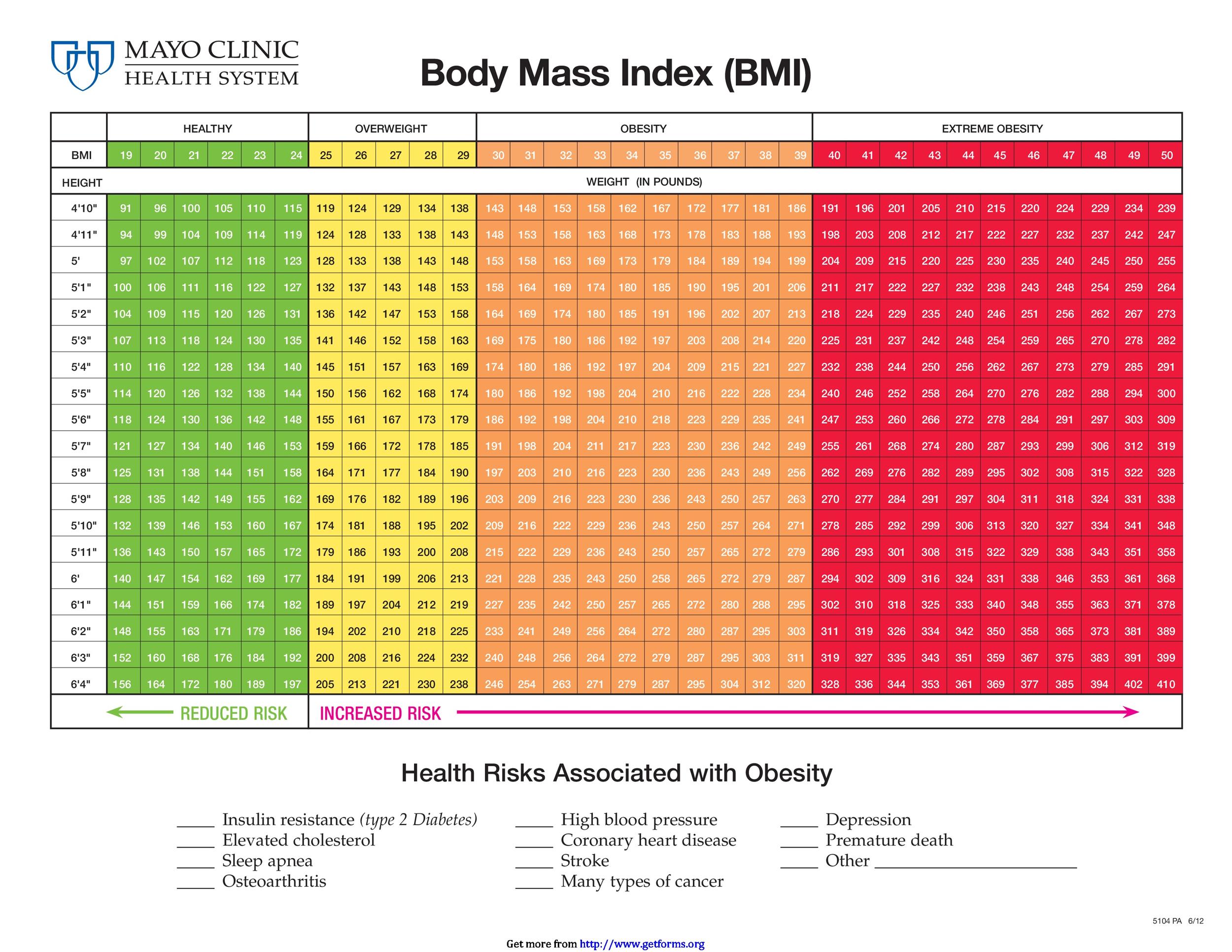

Your doctor can help you work out what your BMI reading means for you personally and whether there are steps you need to take to correct it.” Is BMI an accurate measure of my health?īMI is a good starting point but some researchers would argue that BMI is not a good measure of healthy weight. “There are also many known health risks associated with being overweight or obese, such as type 2 diabetes, heart disease and many types of cancer. “A very low BMI could put you at an increased risk of medical conditions including osteoporosis where bones are thin and fracture easily. “If your BMI is outside of the healthy range, then it’s a good idea to discuss it with your doctor,” Dr McGrattan adds. For example, if you are very muscular, your BMI may indicate that you are overweight when you are in fact very healthy,” says Dr McGrattan.īut it’s always worth checking if you’re not sure, as there are risks associated with being on either side of the ‘unhealthy’ parameters: “It’s important to know that BMI is just a guide and can be misleading in some people. If you’ve put your details into a calculator and the results aren’t within the ‘healthy’ margins, don’t panic.
BODY MASS INDEX CALCULATOR NIH HOW TO
So knowing the average BMI of a population, in collaboration with other health statistics, can give health professionals more information on how to target communities that may need additional help with their lifestyle and healthcare options. “BMI can be used at an individual level to help you decide if you need to gain or lose weight but it is also used at a wider level where it indicates the health of populations,” Dr McGrattan adds. Working out your BMI is not only useful on a personal level, though. “There are health risks associated with being both overweight and underweight.” “Measuring your BMI can help to guide you and your nurse or doctor, as to whether you are a healthy weight.” says Dr Juliet McGrattan, former GP and author of Sorted: The Active Woman’s Guide to Health (opens in new tab). Health care professionals use BMI to help them assess their patients' risk factors for certain weight-related health conditions.

This time, also multiply by 703.įor an easy way to work out your BMI, you could use one of the many online calculators available, where you input your weight and height and it figures it out for you. There is a formula for both.įor metric, you simply work out your height in centimetre-squared, then use this number to divide your weight in kilograms (weight ÷ height²).įor imperial, work out your height (in inches) and use the number to divide your weight in pounds (weight (lbs) ÷ height (in)²). This can be in metric or imperial measurements. Read more: Best exercise machine to lose weight (opens in new tab).Yet since a person’s BMI isn’t focusing exclusively on fat and also includes muscle and other tissues, it is not a complete assessment on its own.


Anyone with a BMI of 30 or more is considered ‘obese’. For most individuals, a BMI between 18.5 and 24.9) is considered normal or acceptable, while people between 25 and 29.9 are categorized as being ‘overweight’. According to the CDC (opens in new tab), a BMI of less than 18.4 on the scale is deemed to be ‘underweight’.


 0 kommentar(er)
0 kommentar(er)
